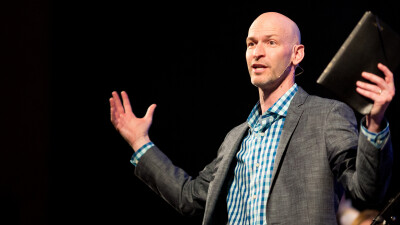On Child Sex Slavery Prevention and Connecting with Little People
Ying was 19 years old when we met in Cambodia last year. I had been waiting for this trip for several years. Our family had sponsored her since 2011 as part of an organization that seeks to prevent kids from being sold into sex trafficking. She was living in a children’s home with a group of other kids and a “house parent” where they were fed, clothed, and brought to school every day.
When we met, we talked about her studies in school and her daily life in a huge bustling city (a translator was present). It was a simple and limited conversation, but it was evident that she was so happy that I was there. I don’t know Ying’s backstory, but I know that many of the children in these children’s homes come from broken families. Some of them are, for instance, step-children, as their mothers moved between partners. To be a step-child is to be worth almost nothing; you were usually dispossessed or sold.
While the level of family dysfunction can be starkly greater among poor families in Southeast Asia, the truth is that Western culture does not have the answers either. We have too many unhealthy families and home environments where children struggle with abuse, low self-worth and suicide. I myself grew up in a broken, unstable and middle-class home with an ever-changing cast of father-figures. After I learned from my mother at the age of 12 for the first time that I was born out of an extramarital affair, I remember, a few years later, wondering, “Can I ever overcome this sense of emptiness?”
When I looked into Ying’s eyes, I saw glimpses of that same search for identity from anyone equipped to offer it. During that trip, a thought entered into my ruminating heart: “This is why I went through what I went through as a child and teenager, seeking after empty identity. Now I have a sense of purpose — I can now help somebody else who is at much greater risk than I ever was.”
For the longest time, I believed that I was at disadvantage compared to “normal” kids who grew up in healthy moral homes. I spent a decade of early adulthood searching for normalcy. Not until I became a husband and parent did I begin to feel a deeper sense of normalization. My relationships have compelled me to let go of old wounds and inferiority complexes and start giving to others — first to my wife, the most cheerful, can-do person that I know, and then to our two boys, so that they could have, and now do have, a life different from the one I had as a child.
The overarching theme of my life has been cultivating resilience. Learning how to adapt and endure are life-lessons that I hope to be able to impart to Ying and others. I want to tell her that it gets better on the other side. Some of us are just late bloomers. And that’s okay.
[Read the longer story HERE]
